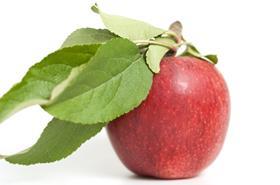
New Zealand-based science company Plant & Food Research says it has used novel plant architectures and canopy management to nearly double the yield of Envy apples and improve the quality of Zespri SunGold kiwifruit.
The company’s team optimised canopy management and tree architecture of the ‘Scilate’ apple variety, marketed under the Envy apple brand. This enhanced the efficiency of plant function and drastically increased the harvest index, the amount of fruit dry weight produced relative to the total dry weight of a tree.
Researchers applied artificial spur extinction, a chemical-free crop load management technique, on trees, to reduce the number of floral buds in winter in order to better allocate carbohydrate and nutrients during growth to the fruit bearing spurs.
Dr Ben van Hooijdonk, a member of the Plant & Food Research team, said the techniques had improved yield and consistency.
“The results have exceeded our initial expectation. In the tenth year from planting, the annual fruit fresh mass yield reached up to 180 tonnes per hectare in our experimental systems of tall spindle trees, which is near double that of tall spindle trees managed conventionally in commercial orchards,” van Hooijdonk said.
“The technique has also eliminated biennial bearing trees, allowing growers to take advantage of regular annual yield, and consistency of supply and quality.”
Principles developed from apples were applied to kiwifruit with Plant & Food Research using recurrent lateral pruning on production of Gold3 kiwifruit (marketed as Zespri SunGold).
This method reduces the pruning intensity of vines to promote cropping on short shoots of low vigour called spurs. Results to date have shown that this approach maintains yield, according to researchers.
Added benefits include reduced winter pruning due to less shoot growth, more consistent fruit dry matter content, and earlier fruit maturation.
The technology from the apple study is now in trial stages in commercial production of Envy apples in New Zealand, the US, the UK and France. The recurrent lateral pruning will be will soon be trialled within commercial Gold3 orchards in New Zealand.



